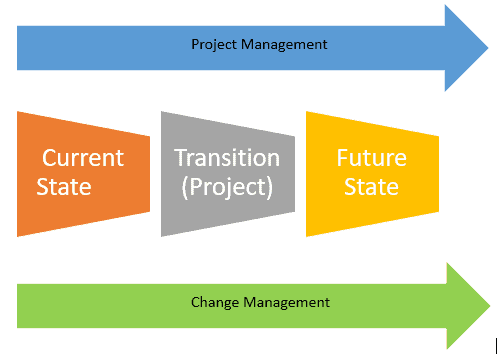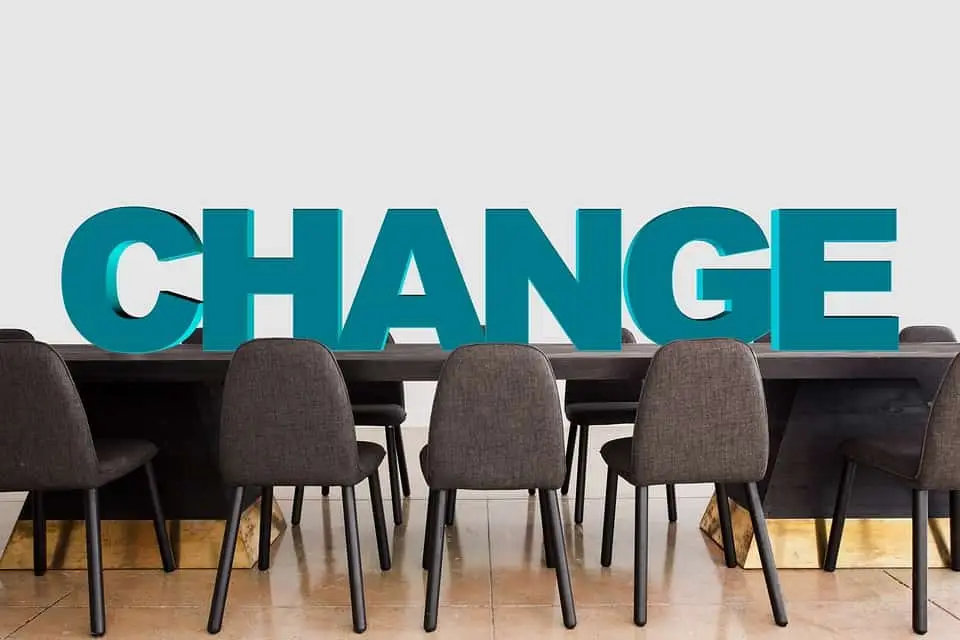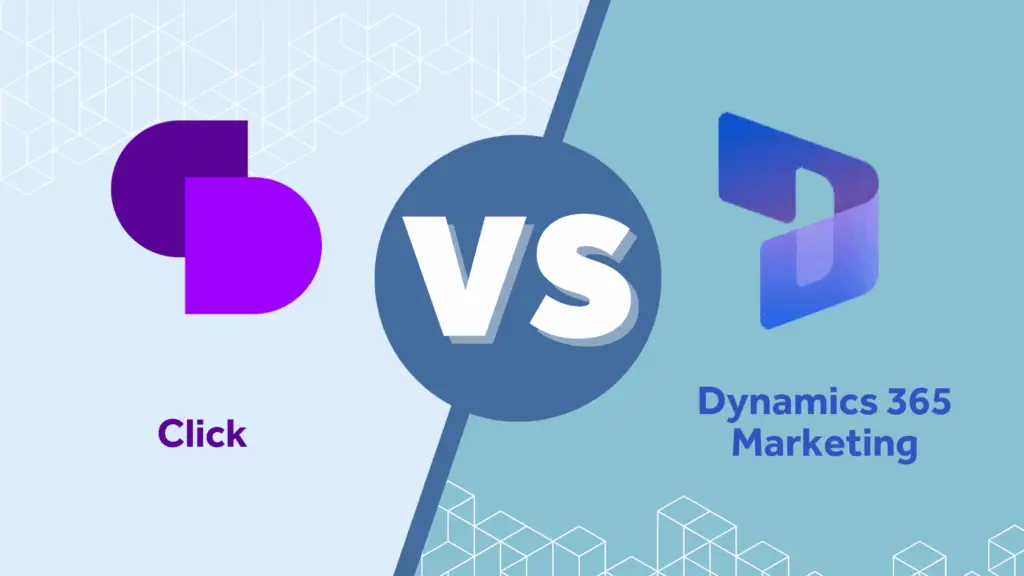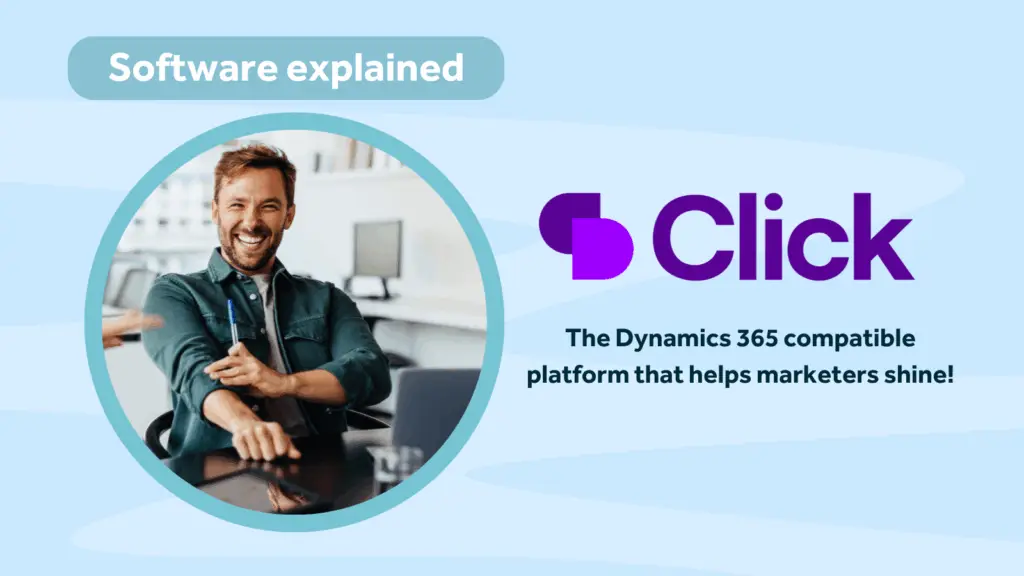Imagine a CRM project as a coin, on one side is the Project Management and on the other side is Change Management. Both are equally important for a CRM project to succeed however we often still tend to only focus on one side of the CRM project coin.
The problem is that all too often the intended benefits of a project are not fully realised due to weak management of the changes that are required within the organisation for the project to succeed. For expected outcomes to be achieved it is necessary to consider and plan very carefully for the human side of the project. Most CRM (and IT) project failures are not due to technical issues but because of the failure of user adoption.
Recent Project Trends in the SME sector
Over recent years, we have seen companies in the SME sector gradually adopting a more mature approach to projects, which has been, on the whole, very welcoming; it wasn’t so long ago that these same companies would be questioning why they had to pay for Project Management time on their CRM project. Those days are now largely and thankfully behind us which has allowed partners to engage fully with the client and add a lot of value during the lifecycle of the technical delivery of a CRM project.
Although partners can add a lot of value through sharing of experience, change management really needs to be led from within the customer organisation and we are not yet at a stage where companies in the SME sector recognise this fully. Although there are now beginning to be signs of an awareness of the what organisational change management is, even if it is not something that happens effectively yet. I think this is at least a good sign for the future.

How can an experienced delivery partner help?
The value that partners can add is to support the customer by helping them to understand why board level support is important and why users don’t always want to automatically embrace change even if we think they will. Rejection, and even sabotage, can be very subtle. It is a naïve manager who says “They will use it because I will tell them to use it” …while the workers are nodding and smiling and in fact outwardly agreeing but inside thinking… “we’ll be the judge of whether this system gets used or not!”
There is currently a lot of lip service paid to change management during the early stages of project initiation and the phrase “user adoption” is banded about very liberally during the partner sales cycle. Regrettably it frequently ends up being forgotten about once the project is underway and more tangible and immediate tasks come front and centre.
Partners in this sector that are engaging with customers as part of a CRM sales cycle really ought to be raising awareness of the internal change management responsibilities for the customer during the initial discussions and following through on those conversations but many don’t of course due to obvious commercial reasons. (“what’s in it for me?”) I shouldn’t tar all partners with the same brush and I am sure that some partners will make very good provision for helping the customer to lay concrete plans for success. There are many obvious wins for partners (as well as the customer) when a CRM project is successful but unfortunately, and from experience, partners tend to be a short-sighted and focus on short-term business gains for themselves and not long-term customer benefits.

So…What is change management?
According to Prosci (recognised leaders in Change Management Education – https://www.prosci.com)
“Change management is the discipline that guides how we prepare, equip and support individuals to successfully adopt change in order to drive organizational success and outcomes.”
Note the word “How”. This word asks you to explain the manner in which you are going to do something… in other words make a plan. If I think back to nearly 20 years of being involved in CRM projects in this sector I think I have seen a concrete plan, with strategies, tools and measures for success, maybe 5 or 6 times. When you think about this it is quite astonishing!
At Rocket CRM, we try to focus on helping the customer to create and maintain a realistic plan for project success. We like to think we are very hands on with this kind of stuff. But that’s enough about blowing our own trumpet.
The truth is that with a little bit of planning and forethought it isn’t hard to increase the chances of your CRM project becoming a successful project. Leaders and business owners don’t need to develop a deep understanding of the complexities of change management or the psychology of the human mind in order to create a sound and structured approach to CRM success.
The simple equation is that the quicker you and your staff become proficient with the new CRM system the quicker you will realise a return on your investment. This is just common sense, so isn’t it a no brainer to make sure you plan to become proficient as quickly as possible?
There are some key areas to focus on that will certainly help.
Here we list 4 key change elements to focus on when you engage in a CRM project
1. Sponsor Commitment
Lack of top down leadership is the number one reason for CRM project failure.
Ask yourself is there going to be enough pressure coming from the board to make sure the change happens successfully? This will involve at least the following from your project sponsor and board
• Setting of clear and measurable goals for success
• Allocation of resources
• Public Rhetoric
• Internal pressure and determination to “push the change through”
2. Overcoming Resistance
Have all the stakeholders been consulted and engaged with or are we just going to “dump” the change on them? Ensuring that all stakeholders have had their “say” will ensure that
• You identify reasons as to why people might reject the change
• They are more likely to feel a sense of ownership and accept the change
• You will uncover small nuances in established processes that you didn’t even consider when you first scoped the project
3. Culture
Company culture is the personality and beliefs of the company.
For example,
• is yours a business that regularly engages with IT systems in order to produce a result?
• Are there clear and defined processes in place already?
• Does the company embrace technology?
• Is collaboration encouraged?
In a nutshell is CRM going to be a good fit for the business.
4. Mentality of an Ongoing Journey
Avoid the trap of thinking of CRM as a one-time project. It should be viewed as a journey, constantly evolving, tweaking and improving. Yes, it will mean ongoing investment of time and of money but in the long run this will be better and more economical than project failure.
Actions here are
• Create a “Vision” and steering group within your organisation made up of key stakeholders
• Have an ongoing education/training programme
• Have a solid support structure in place
• Work towards making CRM central to your organisation by incorporating CRM into KPIs
Conclusion
It has been said that there are two ways to fail when executing major change.
1. To implement a bad system
2. To implement a good system badly
In the SME sector its common for everyone to be stretched to capacity and to have to wear many hats, but with just a little planning and forethought it’s possible to dramatically increase the chances of CRM success. If you have a CRM project upcoming we would encourage you to work with a CRM partner and exploit them as much as possible for advice on how to deal with the change management aspects of your project. They will have delivered a lot of CRM projects and so will have countless tales both good and bad. Be determined, make a plan and stack the odds in your favour.
If you have any questions, feedback or if you need help with a project feel free to get in touch via email, phone or twitter. We are always happy to have a chat.
About Rocket CRM
Rocket CRM is a Microsoft Dynamics 365, and a platinum Click accredited partner, helping small to medium-sized businesses and charities harness the power of scalable CRM technology. Our mission is to make powerful CRM software simple with custom-built, user-focused solutions.
Website: rocketcrm.co.uk
Podcast: RocketPod
Social: LinkedIn




